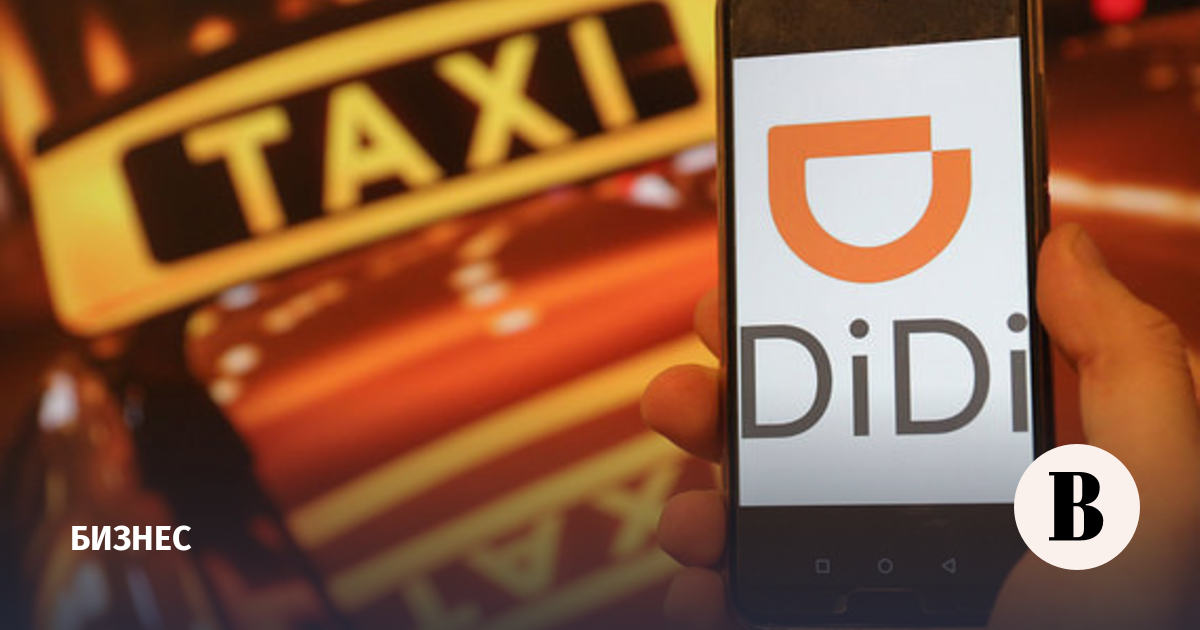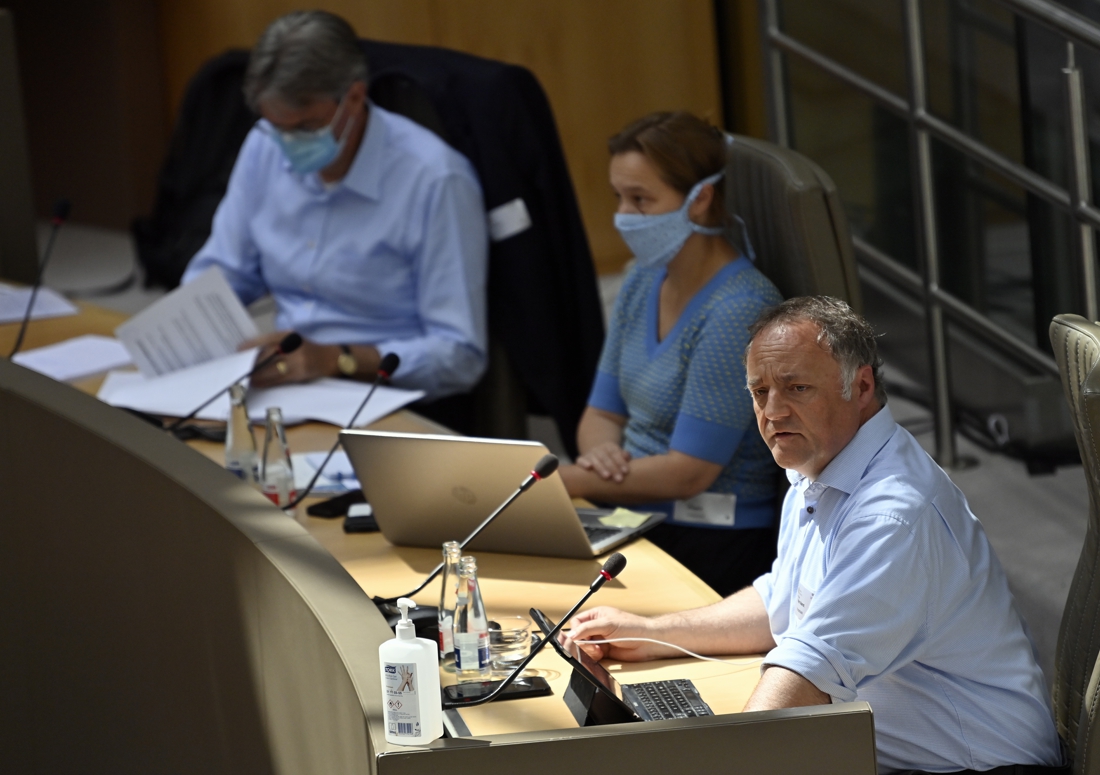Taxi aggregator DiDi, owned by the Chinese company Didi Chuxing, will start operating in 15 new cities in Russia, a representative of the Russian office of Didi Mobility Rus told Vedomosti. At the end of August, the service was launched in Kazan.
– –
From October 30, the company will begin registration of drivers in Belgorod, Bryansk, Vladimir, Kursk, Lipetsk, Ryazan, Tambov, Tver, Tula, Izhevsk, Naberezhnye Chelny, Orenburg, Penza, Cheboksary and Yoshkar-Ola. The company does not disclose when the application will be launched for users in these cities. “The opening of registration for drivers means that we will definitely launch in these cities,” the service representative confirms. The commission for drivers (the percentage of the cost of the trip that the aggregator takes) has been increased from 5 to 9.5%, says her representative.
– –
“Didi entered the market with a ‘discount and subsidy’ strategy. Against the background of their actions, the Kazan market grew in terms of the number of trips. This strategy allowed them to become the number two player in Kazan, ”Evgeny Senderov, CFO of the competing service Yandex.Taxi, said recently at a teleconference with investors. But Yandex still carries out the most trips in this city. The company’s commission is about 13%, a source told Vedomosti on the Kazan taxi market.
– –
“The cost of a standard trip to Didi in Kazan is about the same as that of competitors. Just at the stage of launching in Russia, they used various promotions, as if “buying” both drivers and passengers – these are free rides on Fridays, discounts on trips for passengers who first used the application, and a higher guaranteed income for drivers. Now “Didi” has already abandoned some of these actions, “says Stanislav Shvagerus, head of the Competence Center of the Taxi International Eurasian Forum.
– –
$ 60 billion
how much Didi can be valued at IPO on the Hong Kong Stock Exchange
– –
The taxi market is gaining momentum in the pandemic 2020. Citymobil reported a 4-fold increase in the number of trips in the III quarter compared to the same period in 2019 – up to 50 million. In July-September, Yandex’s number of trips increased by 24% in annual terms. The company’s revenue related to the taxi segment (including food tech) increased 1.5 times over the nine months to RUB 45.31 billion, accounting for almost a third of the holding’s total revenue.
– –
Yandex.Taxi is generally confident in its competitive advantages and strategy in the market, says its representative Asya Panoyan. “We have a clear plan on how to maintain our leadership position by focusing on excellent customer service and maintaining high income levels for partners and drivers, leveraging our full multi-brand potential,” she says.
– –
“We believe that competition is a good driver of development for the entire industry. The arrival of an international player in Russia will require us to work even more carefully to improve our service. Ultimately, this is good for everyone: passengers, drivers and taxi companies, ”said a representative of Citymobil (adding that, according to the company’s estimates, Citymobil is still in second place in the Kazan market).
– –
“Chinese companies are known for their aggressive pricing, not only in the taxi industry, but in other industries as well. In the medium term, the exit of the Chinese aggregator is likely to intensify competition in the mass segments. Therefore, now the task of the mass players is not to let the newcomer into the market at a swoop, ”Anatoly Smorgonsky, General Director of Gett in Russia, told Vedomosti through the press service. At the same time, for Gett itself, which is increasingly focusing on b2b transportation and luxury classes, the arrival of Didi is not a threat. “This is a potential opportunity to expand the list of partners in economy class transportation,” says Smorgonsky.
– –
The aggregator “Lucky” calls the approach of the Chinese competitor a short-term “war for the client” and are not ready yet to make forecasts about its expansion. “Each region of our country has its own characteristics and requires different approaches. We are developing a technology platform, our own call centers and partnerships with drivers. For us, the main competitor is still a personal car, ”a representative of“ Lucky ”told Vedomosti.
– –
“Didi’s entry into the Russian market is reminiscent of the launch of Bolt (an Estonian aggregator of taxis and electric scooters) in St. Petersburg, when a company with a large amount of capital and good technologies entered a new market and won a high share thanks to significant investments. But, gradually reducing investments, Bolt has reduced its share to almost zero after about two years of operation, “- another source told Vedomosti in the taxi market.
– –
Schwagerus agrees with him. “Apparently, the strategy of the Chinese aggregator is to win over the audience through large investments. Local markets in regional centers will feel a temporary change with the arrival of a new player for three months to six months. Drivers will be attracted by additional payments, passengers will enjoy using free rides. But, as the work in Kazan showed, the company uses all the same tools, mechanisms and business model as other aggregators, they do not have unique or more advanced software than others, ”explains Schwagerus.
– –
In addition to China and Russia, DiDi operates in eight other countries, including Brazil and Mexico, and the number of service users is 550 million people. In addition to taxis, the company provides services for bike rental, food delivery and logistics. Didi plans to conduct an IPO on the Hong Kong Stock Exchange in the first half of 2021, Reuters reported on October 20, citing sources. In the second quarter of 2020, the company, which was founded eight years ago, finally became profitable – and Didi’s management decided to start preparing for the listing. The company can be valued at $ 60 billion, analysts say.
– – .


